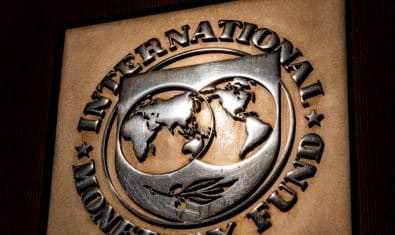Pakistan’s social spending is both inefficient and not enough and should give priority to addressing spending efficiency before increasing its level to maximize impact per dollar spent, says the International Monetary Fund (IMF).
IMF in its latest report “Social Spending for Inclusive Growth in the Middle East and Central Asia” stated that there is scope to increase the efficiency of public health care spending in the region. This is especially the case in Kazakhstan, Kuwait, and Pakistan.
“Lebanon, Mauritania, Pakistan, and Tajikistan are not spending enough and could see their gross school enrollment and expected years of schooling rise with larger education budgets. In countries that are spending both inefficiently and not enough (Mauritania, Pakistan, Qatar), priority should be given to addressing spending efficiency before increasing its level to maximize impact per dollar spent”, it added.
“As countries that are efficient but are not spending enough increase their level of spending, they may witness a decrease in their efficiency scores due to diminishing marginal returns. Indeed we find evidence of decreasing returns to scale. Therefore, any additional spending needs to be calibrated in a way that preserves efficiency and achieves better outcomes per dollar spent. Promoting high-quality education, starting in the early years and setting the right teaching policies, provides an opportunity for efficiency savings over time,” the report added.
To prevent deterioration in socio-economic indicators, governments’ COVID-19 responses should proactively target vulnerable groups, including women, informal sector workers, and refugees. World Bank simulations of the pandemic suggest that children on average will lose 0.6 years of schooling, adjusted for quality, risking deterioration in education outcomes and lifelong earnings.
Given the uneven impact of the crisis on women, there is a high risk that gender inequality will widen, and progress achieved over the past two decades will be reversed.
Encouragingly, Egypt, Mauritania, and Pakistan targeted financial support to vulnerable women through broader social assistance schemes, while Algeria gave priority for exceptional leave to pregnant women and women raising children.
Before the current crisis, many countries in the region had already started to take measures to create fiscal space for social spending, including by undertaking fiscal reforms together with strengthening targeted outlays on social safety nets (Armenia, Egypt, Tunisia, Jordan, Pakistan, Oman, Saudi Arabia), mobilizing and diversifying revenues (Bahrain, Saudi Arabia, United Arab Emirates), strengthening tax administration, and rationalizing tax exemptions. These efforts will need to continue following the crisis.
The report further stated that Pakistan has announced a relief package worth $7.3 billion to respond to the impact of the pandemic, including elimination of import duties on emergency health equipment, approved cash disbursements to daily wage workers ($457 million), cash transfers to low-income families ($915 million), accelerated tax refunds to the export industry ($610 million), and financial support to SMEs and the agriculture sector ($610 million).


























